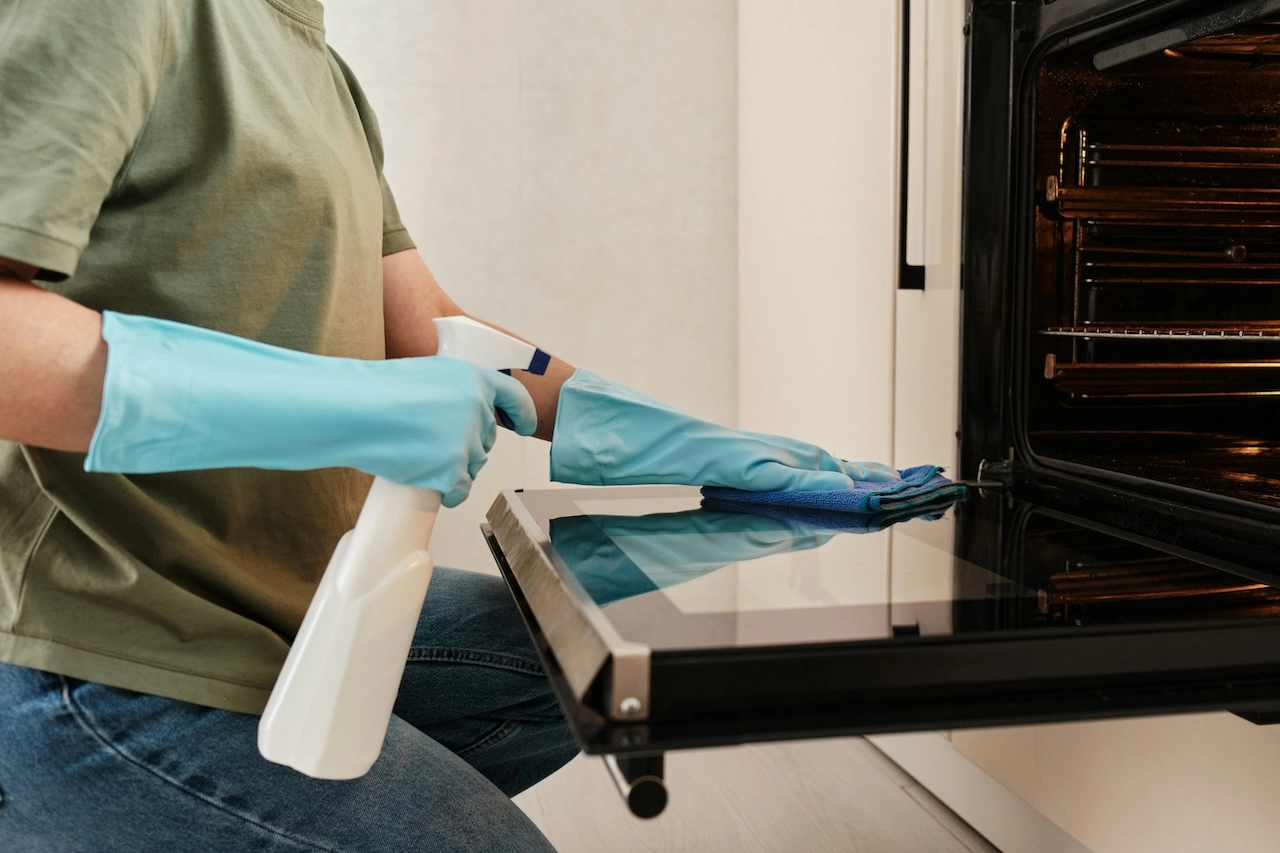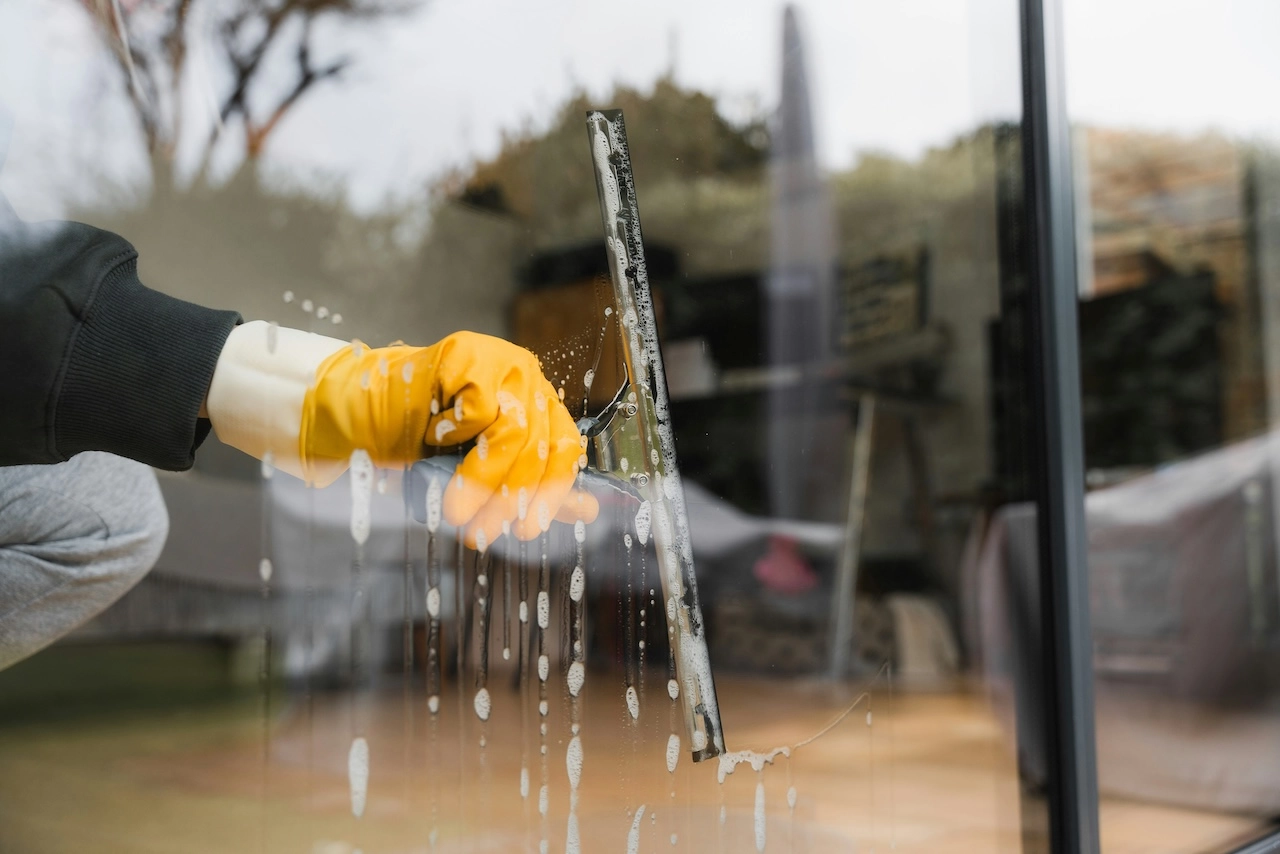If you’ve been wondering how to start a cleaning service and aren’t sure where to begin, you’re definitely in the right spot. Think of this guide as your personal mentor, walking you through each step in a no-nonsense, friendly tone. Let’s break down the process of taking your dream from a mere thought bubble to a thriving, real-life cleaning operation. Whether you’re juggling multiple ideas for your next startup, or just daydreaming about wiping away financial worries with a broom and a mop, I’ve got you covered.
In this article, we’ll talk about carving out your niche, setting up shop, tackling those pesky legal requirements, and using simple marketing methods to spread the word. We’ll show you exactly how to tap into entrepreneurship and transform your passion for tidiness into a profitable venture. From the nitty-gritty (like choosing the right equipment) to the big picture (like scaling for growth), we’ve got all the corners covered. Let’s get to it and put that sparkle in your future business.
Understanding the Cleaning Industry Landscape
Starting a cleaning business means getting a solid understanding of what you’re stepping into. You can’t just grab a bucket and run to your neighbor’s house expecting piles of cash. Before you start scrubbing, do some research. This knowledge is your compass, helping you navigate the maze of competition, consumer expectations, and industry trends.
Recognizing Market Demand
In the cleaning industry, demand is often high. Folks are busy, and they’re willing to pay good money for someone else to take charge of their chores. To recognize market demand, glance at your community: Are there a ton of working professionals who value extra time on weekends? Are there local offices looking for consistent cleaning? By talking to potential clients and doing a bit of online snooping, you’ll figure out what services are the hottest.
Identifying Your Niche
You don’t have to clean everything. Maybe your heart sings for eco-friendly solutions or you’ve got a knack for restoring that antique shine to wood floors. Identifying your niche could mean focusing on residential, commercial, or specialized cleaning (like post-renovation jobs). When you pick a unique angle, it helps you stand out from the ordinary crowd and carve out a loyal customer base that values what you do.
Establishing a Solid Business Plan
Once you know who you’re cleaning for, it’s time to map out the journey. Think of your business plan as a blueprint, detailing everything from your mission to your financial projections. Before you dive deeper, remember: a well-structured plan is like GPS for your company, keeping you from getting lost in the shuffle.
Defining Your Mission and Vision
Your mission and vision are the personality of your cleaning service. Are you all about using non-toxic products, or do you want to provide budget-friendly cleaning for local families? Put it into words. Write it down. This clarifies why you’re in business and what you hope to achieve. Plus, it gives your customers a reason to trust and believe in what you’re doing.
Setting Clear Financial Goals
Every small business needs some number crunching. Determine how much you need for initial setup, ongoing expenses, and your profit margins. Consider how to handle labor costs, cleaning supplies, and marketing fees. When you set clear financial goals, you’ll have a better shot at steady growth. Remember to reinvest profits back into the company when it makes sense and keep some spare change tucked away for rainy days.

Legal Requirements and Business Structure
When learning how to create a cleaning company, it’s crucial to handle the legal aspects. This keeps your operations legit and helps you avoid nasty surprises down the line.
Choosing the Right Legal Structure
You might choose to operate as a sole proprietor, LLC, or even a corporation. For many folks just learning how to start a cleaning service with little money, forming a simple LLC is a popular choice since it offers personal liability protection and is relatively easy to set up. Seek advice from a local attorney or use trusted online resources to guide your decision.
Registering Your Business and Securing Licenses
Different locations have different rules. Make sure to register your business name (this might involve a DBA if you’re using a brand name rather than your given name) and obtain any necessary licenses. You might need a general business license, and perhaps additional permits depending on your area. Some states or counties require special insurance or bonding for cleaning services. Don’t skip this step—legal peace of mind will help you sleep soundly at night.
Branding and Positioning
If you want people to remember you, you need a brand that pops. Branding is more than a logo—it’s the look, feel, and tone that your business brings to the table.
Naming Your Cleaning Service
Choose a name that’s simple, catchy, and represents your values. Maybe it’s “Sparkle & Shine” or “Green & Clean.” Your name should be easy to say, easy to remember, and ideally hint at what you do. A good brand name can save you from getting lost in the crowd.
Designing Your Brand Identity
Your brand identity involves the colors, fonts, and imagery you use. Choose a color palette that feels fresh, like blues or greens, and craft a simple, modern logo. This visual identity will show up on your website, marketing materials, uniforms, and even your cleaning tools. Good branding makes you look polished and professional, even if you’re still figuring things out behind the scenes.
Setting Up Operations and Services
Next, it’s time to decide exactly what you’re going to clean and how you’re going to do it. Operations are the nuts and bolts that keep your business humming along smoothly.
Determining Services Offered
Are you specializing in residential house cleaning, office tidying, or move-in/move-out cleans? Perhaps you offer carpet shampooing or window washing as add-ons. The clearer you define your services, the easier it is for customers to understand what they’re getting. Plus, knowing the scope of work helps you set your pricing right from the get-go.
Pricing Your Services Competitively
Pricing can feel tricky, but think about your costs and the market average. Don’t be afraid to charge what you’re worth. If you’re how to start a cleaning service from home step by step, start modestly but remember that your time is valuable. Consider offering package deals or discounts for regular customers. Tracking how much time each job takes will help you adjust pricing as you grow.

Essential Equipment and Supplies
You can’t clean without the right tools. Gathering quality supplies not only makes the job easier but also ensures you deliver top-notch results.
Creating an Equipment Checklist
You’ll need basics like mops, brooms, cleaning solutions, vacuum cleaners, microfiber cloths, and protective gloves. For bigger gigs, consider equipment like carpet cleaners or pressure washers. Before you splurge, shop around for quality tools at competitive prices. Look for deals, coupons, or even second-hand equipment if you’re tight on budget.
Below is a quick reference table you might find handy as you build your checklist:
Equipment Purpose Estimated Cost
| Equipment | Purpose | Estimated Cost |
| Mop & Bucket | Floor Mopping | $20 - $50 |
| Microfiber Cloths | Dusting, Polishing | $10 - $20 |
| High-Quality Vacuum | Floor & Carpet Cleaning | $100 - $300 |
| Eco-Friendly Cleaning Solutions | General Cleaning | $20 - $40 |
| Protective Gloves & Masks | Safety & Hygiene | $5 - $15 |
Budgeting for Quality Products
Don’t always go for the cheapest option. High-quality cleaning solutions can cut your labor time and leave a better impression. Over time, durable tools pay off because they don’t wear out as quickly. When choosing suppliers, ask about bulk discounts or loyalty programs. Remember, investing in quality is investing in your reputation.
Marketing Your Cleaning Business
Marketing doesn’t have to be fancy—sometimes a simple flyer at the local coffee shop works wonders. But in today’s digital age, an online presence is crucial. After all, how else will people find you when they’re searching for solutions to their cleaning woes?
Building an Online Presence
Create a user-friendly website that clearly states your services, rates, and contact info. Consider starting a blog about how to start a cleaning service, offering tips and tricks for a spotless home. This builds trust and shows you know your stuff. Don’t forget social media—Facebook, Instagram, and even LinkedIn can help you connect with potential clients. Posting before-and-after photos or cleaning hacks can engage your audience.
Leveraging Local Advertising
Old-school methods still have merit. Stick flyers on community bulletin boards, place ads in local newsletters, or sponsor a local event. Word-of
-mouth is huge—impress your first few clients, and they’ll spread the word. Consider referral discounts to incentivize your customers to become your biggest cheerleaders. Remember, it’s easier to sell to your neighbor than a stranger across the country.

Hiring and Training Staff
Sooner or later, you’ll need extra hands. Hiring the right people can make or break your business. Think of your team as brand ambassadors—they’re the ones customers will interact with the most.
Finding Reliable Employees
Look for folks who are punctual, detail-oriented, and friendly. You can post job listings on local job boards, or even ask friends and family. It’s okay to start small. When you find trustworthy employees, treat them well. Good morale among your team shows through in the quality of their work.
Providing Effective Training
Don’t just hand them a broom and say “go.” Show them your cleaning techniques, explain your standards, and walk them through each step. Training ensures consistency in the results you deliver. Customers love consistency—it builds trust and keeps them coming back. Plus, a well-trained team saves you time micromanaging.
Customer Service and Retention
Think of customers like plants—they need nurturing. Going the extra mile in customer service will help you grow a thriving garden of loyal clients. They’ll not only call you back but also sing your praises to others.
Communicating with Clients
Be easy to reach by phone, email, or social media. Respond promptly and politely. Listen to their needs and tweak your services as required. Simple gestures, like a follow-up text after a job, can show you genuinely care about their satisfaction.
Offering Quality Assurance
If a client isn’t happy, don’t hide—address the issue head-on. Offer a re-clean or a discount on their next service. Show that you stand by the quality of your work. This honesty and commitment will reassure customers that choosing you was the right move.
Financial Management and Accounting
Money makes your business world go round. Keeping track of it smartly ensures you don’t slip on any banana peels along the way.
Tracking Expenses and Revenue
Use accounting software to record every expense and payment. Keeping tabs on your finances helps you spot trends and find new ways to save or earn more. Be diligent about invoices, pay employees on time, and set aside money for taxes. A well-managed financial house lets you focus on growing your business, rather than wrestling with paperwork.
Planning for Growth and Expansion
As your client list expands, you might consider hiring more staff, buying more equipment, or even opening a second location. Crunch numbers before you take these steps to ensure the timing is right. Focus on steady growth over overnight success—it’s usually more sustainable.
Scaling Your Cleaning Service
When you’ve got a steady client base and a good reputation, it’s time to scale up. This might mean offering more services or branching into new markets.
Expanding Service Areas
Maybe you start serving neighboring towns or additional neighborhoods. Scaling geographically can help you reach new customers who are hungry for what you offer. Just make sure you’ve got the staff and resources to cover the extra territory without compromising quality.
Diversifying Services
Think about adding specialty services like carpet shampooing, window washing, or organizing services. By diversifying, you’ll offer a one-stop solution for customers’ cleaning needs. This also helps you stand out, making it harder for clients to resist your well-rounded package.

Long-Term Sustainability and Innovation
Longevity in business isn’t just about sticking around—it’s about adapting, growing, and improving over time.
Embracing Eco-Friendly Practices
Green is the new clean. Using eco-friendly products doesn’t just set you apart, it shows customers you care about their health and the planet. Plus, it can reduce your exposure to harsh chemicals. Over time, embracing sustainability can become a big selling point and even inspire customer loyalty.
Adapting to Industry Trends
Stay tuned to what’s trending in the cleaning world. Maybe it’s robotic vacuum cleaners, or a new antibacterial spray that’s all the rage. Keep learning through online courses, webinars, and forums dedicated to entrepreneurship. By staying current, you’ll keep your services fresh and relevant. Innovation keeps you ahead of competitors and ensures your customers are always impressed.
Marketing Channels to Consider
| Marketing Channel | Pros | Cons |
| Local Facebook Groups | Targeted local audience, free | Requires active participation |
| Google My Business | Visibility in local searches | Requires regular updates and reviews |
| Flyers & Posters | Affordable, direct appeal | Limited reach, easily overlooked |
| Partnering with Realtors | Access to new homeowners | Might require commission or fees |
FAQs
Q1: Do I need a lot of money to start a cleaning service?
A1: Not necessarily. If you’re wondering how to start a cleaning service with little money, focus on the essentials first. Begin with basic supplies, handle admin tasks yourself, and grow gradually. As you turn a profit, reinvest in better equipment and marketing.
Q2: Can I run a cleaning business from my home?
A2: Absolutely. Many people learn how to start a cleaning service from home step by step. You can store supplies at home, handle scheduling online, and even do marketing from your living room. Just ensure you meet local regulations and have enough space to keep your tools organized.
Q3: How do I attract my first customers?
A3: Start small. Ask friends, family, and neighbors to spread the word. Create a simple website, print flyers, and join local Facebook groups. Offer a first-time discount. Once you impress your initial customers, their referrals will kickstart your growth.
Q4: What if I don’t have any professional cleaning experience?
A4: No worries. Everyone starts somewhere. Practice on your own home, watch YouTube tutorials, and read up on the best methods. Over time, you’ll pick up techniques and discover tips to clean smarter, not harder.
Q5: Is insurance necessary?
A5: Insurance is a smart investment. It protects you financially if something goes wrong—like breaking a client’s valuable vase. While not always required by law, it can give you and your customers peace of mind.
